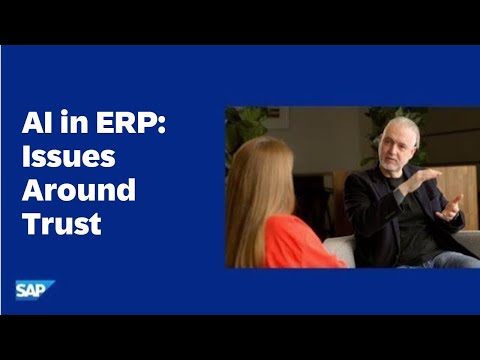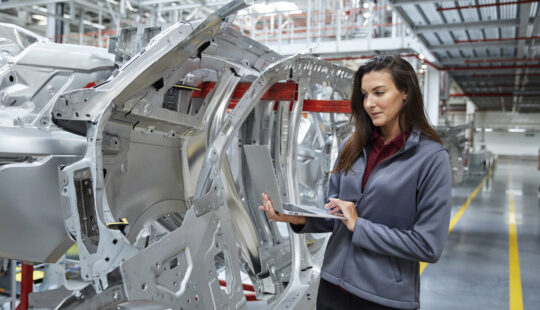As a business leader, basing business decisions on a new technology model like cloud computing or implementing a new technology like generative AI places a premium on trust.
Paul Saunders, head of Product Strategy and chief evangelist of Cloud ERP for SAP S/4HANA put it this way during a recent interview: “Trust is not the engine oil, it’s the essence of business.”
In the interview, Saunders explains this and other aspects of the changing relationship between humans. The former Gartner analyst believes that this changed relationship has pushed trust to the top of the corporate agenda and made SAP’s commitment to relevant, reliable, and responsible business AI all the more crucial.
“The relationship between SAP and our customers for the longest time was transactional,” he says. But the shift to the cloud has changed that. From the customer’s perspective, in a cloud environment the SaaS vendor is effectively running the business and that requires a whole new level of trust.
As Saunders notes, “When a data center goes down the customer can’t just say, ‘Hey Bob, get down to the computer room and reboot the box.’ Now, with AI, it’s not just the data we’re providing, but information and recommendations. And some of those recommendations might challenge what the person thinks intuitively.”
For example, when Saunders was CIO of a golf cart maker in Georgia that shipped the carts all over the United States, he put in an early AI-based route planning package designed to optimize the deliveries of the carts to customers across the country.
But despite the potential efficiency gains promised by the technology, the CEO who had run the company for 40 years and was accustomed to relying on his own judgment overruled the software and insisted that the drivers follow his preferred delivery route.
This resistance to change reflects a broader reluctance to embrace data-driven decision-making, with individuals often interpreting data in a way that reinforces their existing beliefs rather than challenging them.
When faced with the suggestion from a machine to do something different, most people will only follow the advice if they have solid confidence in the accuracy of the underlying data and can retain oversight of the process.
That, according to Saunders, plays to SAP’s advantage. He acknowledges that SAP is sometimes considered to be “a little bit old fashioned,” but also thought of as “incredibly reliable and trustworthy.”
In such a fast-changing and unpredictable environment — one in which many experts, including Saunders, predict that at least one big brand name company will be in the news “for doing something terrible with AI” — SAP’s commitment to delivering dependable solutions infused with relevant, reliable, and responsible business AI is key.
For Saunders, the importance of fostering trust and confidence in both the technology itself and the organizations deploying it, particularly in industries where risk aversion and conservatism are prevalent, cannot be overstated.
But he also believes that organizations need to strike a balance between automation and human intervention, recognizing that while AI can streamline processes and improve efficiency, human judgment and oversight remain essential for ensuring the accuracy and reliability of AI-generated insights.
In the end, what really matters to customers is not the technology itself, but the business value that it creates. “If you go to any CEO or CFO, they will tell you they only care about three things: revenue, cost, and risk. That’s it.”
Ultimately, he says, “Everything we do has to show the business value.”




